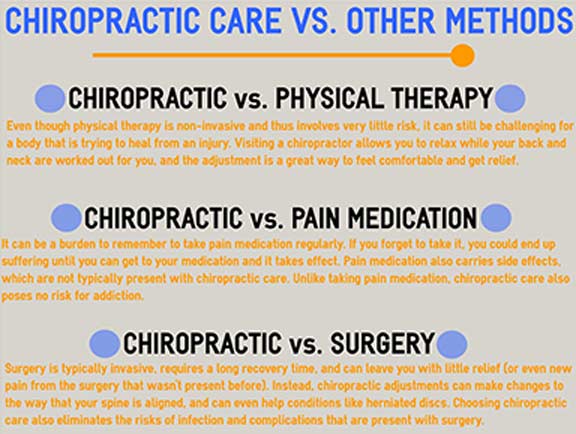Comprehending Nutrition'S Role In Back Pain Monitoring: Beneficial Foods And Foods To Avoid
Comprehending Nutrition'S Role In Back Pain Monitoring: Beneficial Foods And Foods To Avoid
Blog Article
Short Article Written By-Duus Sharpe
When it concerns managing your neck and back pain, the food options you make can significantly influence just how you feel each day. Envision being able to alleviate your pain simply by adjusting what you eat. By understanding the role of nourishment in back pain administration and knowing which foods to include or stay away from, you can take aggressive actions towards a healthier and a lot more comfy way of living. The connection in between nutrition and back wellness is a lot more profound than you may understand-- allow's explore exactly how certain foods can either relieve or aggravate your neck and back pain.
Importance of Nutrition in Back Pain
Nourishment plays a vital duty in taking care of neck and back pain. Your diet regimen can considerably impact swelling degrees and total discomfort degrees in your back. Eating a balanced diet abundant in nutrients like vitamins D and K, calcium, magnesium, and omega-3 fats can help reduce inflammation and strengthen bones, which are essential for back health and wellness.
Additionally, keeping a healthy and balanced weight through proper nourishment can reduce anxiety on your spine, decreasing the danger of back pain.
Furthermore, specific nutrients like anti-oxidants discovered in fruits and vegetables can aid battle oxidative anxiety and promote recovery in the body, consisting of the back muscles and spine.
On the other hand, consuming too much amounts of refined foods, sugary beverages, and harmful fats can contribute to inflammation and weight gain, worsening neck and back pain.
Foods to Consume for Back Health
To sustain a healthy and balanced back, integrating nutrient-rich foods into your daily meals is key. Including foods high in anti-oxidants like berries, spinach, and kale can help in reducing inflammation in your back, alleviating discomfort and pain. Omega-3 fats located in fatty fish such as salmon and mackerel have anti-inflammatory homes that can benefit your back wellness.
Additionally, consuming nuts and seeds like almonds, walnuts, and chia seeds gives necessary nutrients like magnesium and vitamin E, which support muscular tissue function and decrease oxidative stress. Incorporating lean proteins such as hen, turkey, and tofu can help in muscular tissue fixing and maintenance, advertising a solid back.
Do not fail to remember to consist of milk or fortified plant-based options for calcium to sustain bone wellness. Last but not least, hydrate with lots of water to keep your spinal discs moisturized and operating optimally. By including how long does lower back pain last -dense foods in your diet, you can nurture your back and support total back health and wellness.
Foods to Avoid for Pain In The Back
Opt for preventing processed foods high in sugarcoated and trans fats when seeking relief from pain in the back. functional medicine doctors in austin of foods can contribute to swelling in the body, which might exacerbate back pain. Say no to sugary treats like candy, pastries, and sweet drinks, in addition to junk food things like hamburgers, fries, and fried chicken that are usually filled with trans fats.
In addition, stay away from foods having high degrees of refined carbohydrates, such as white bread, pasta, and pastries, as they can increase blood glucose degrees and potentially aggravate inflammation in the body.
It's likewise a good idea to limit your intake of foods high in saturated fats, like red meat and full-fat dairy items, as they can contribute to swelling. Processed foods like deli meats, chips, and packaged snacks are usually high in saturated fats and should be consumed in moderation.
Verdict
In conclusion, taking notice of your diet regimen and making clever food choices can have a substantial influence on handling pain in the back. By including nutrient-rich foods like berries, fatty fish, nuts, and lean proteins, and staying clear of refined and sugary products, you can help reduce inflammation and support in general back health. Keep in mind, what you consume plays an essential function in exactly how you feel, so make sure to prioritize your nutrition for a much healthier back.
